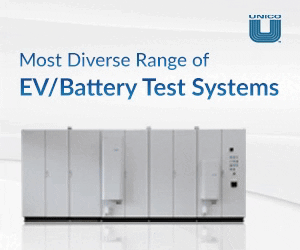
[ad_1]
The IRA and BIL are spurring an enormous wave of funding in EV crops and EV charging infrastructure, and thus far, the lion’s share of this funding is flowing to pink states. Many business observers anticipate the inflow of money and jobs to blunt opposition to EVs in red-state legislatures.
This equation doesn’t appear to use in Kentucky, the place two EV battery crops for Ford and an EV manufacturing facility for Toyota are beneath building. Governor Andy Beshear has known as Kentucky “the electrical car battery manufacturing capital of the USA.” However this hasn’t stopped the state legislature from implementing an arcane new tax that can make it costlier and sophisticated for a enterprise or authorities company to supply EV charging to the general public.
Anybody who installs a publicly accessible EV charger, free or paid, together with authorities entities similar to cities, counties and libraries, should now quantify the quantity of electrical energy distributed from the charger—even when it has no separate meter—and pay a month-to-month utilization tax to the state. The brand new tax applies retroactively, to any charging stations that had been put in after July 1, 2022.
Republican State Senator Jimmy Higdon, Chairman of the Senate Transportation Committee, stated the purpose is to seize income for state street funding from EV drivers passing by Kentucky. “The legislative intent of what we did was to seize these out-of-state vacationers and never the in-state,” he stated.
Kentucky EV homeowners already pay an annual payment of $120 for every EV (along with the registration payment that applies to all autos).
Kentucky is one in all seven states that individually tax the electrical energy consumed at public EV charging stations, based on the Nationwide Convention of State Legislatures.
Critics of the brand new tax say it would discourage the set up of free EV charging stations, that are extra doubtless for use by Kentucky EV drivers, who will now be double-taxed for driving electrical.
The issue with Kentucky’s new electrical energy tax isn’t the fee, Mike Proctor, a board member of EV homeowners’ group EvolveKY, instructed native TV station WDRB. Hosts of Stage 2 chargers will owe about 21 cents in tax for each hour that an EV is plugged in, he estimates, primarily based on the tax charge of $0.03 per kWh.
The issue is the pink tape concerned with complying with the tax. Each public charging host must calculate the month-to-month utilization, fill out a type, and remit fee to the state every month. Operators of freeway quick charging stations, which are typically bigger corporations, are geared up to take action, and can in all probability go the extra prices on to their clients. Nonetheless, homeowners of free Stage 2 websites (that are extraordinarily unlikely for use by “out-of-state vacationers”) might discover the extra paperwork too burdensome to trouble with.
“The most important concern is that [providing public charging] will not be going to usher in the income that makes it definitely worth the expense, so that you’re going to see individuals cease offering public chargers,” stated Lane Boldman, Government Director of the Kentucky Conservation Committee.
The Louisville metro space has some 60 free neighborhood chargers at church buildings, companies and different neighborhood websites, due to the efforts of EvolveKY, which handles the installations. The neighborhood teams that sponsor these chargers sometimes pay $5,000 to $6,000 for the set up and about $50 to $75 a month in further electrical energy expenses, says Mike Proctor, including that neighborhood chargers sometimes don’t include a separate electrical meter. “We’ve been coping with essentially the most cheap [chargers] as a result of if somebody is making an attempt to get a charger out in the neighborhood, we need to get it in as inexpensively as doable.”
Higdon, the chairman of the Senate transportation committee, stated lawmakers didn’t intend to “double dip” by charging Kentuckians each the present annual EV payment and the brand new tax. He instructed WDRB that he expects lawmakers to entertain “tweaks” to the coverage when the legislature reconvenes in early 2024, and that he “definitely might assist” exempting free chargers from the brand new tax.
Supply: WDRB
[ad_2]
